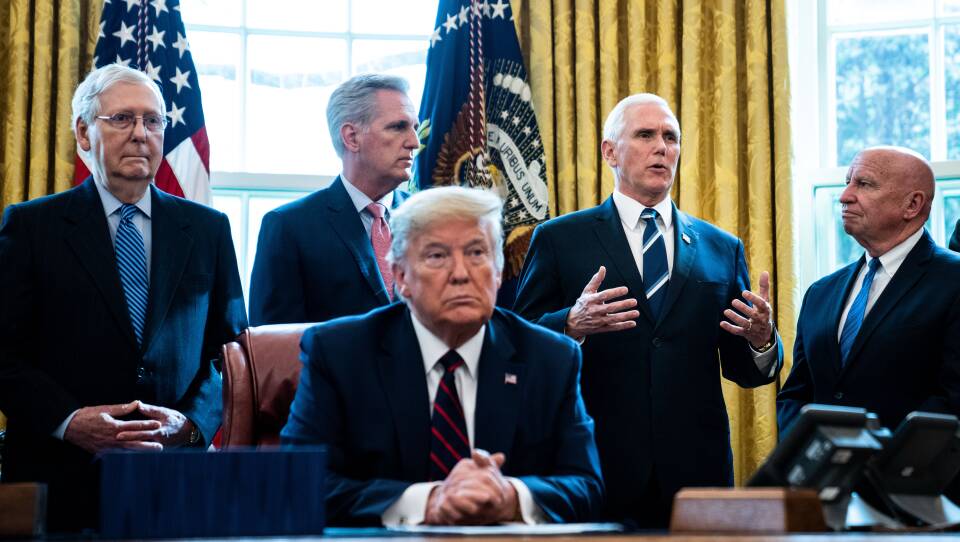The President signed a $2 trillion coronavirus response bill into law that will bring some financial relief to the U.S. economy, meant to keep people afloat during an unprecedented halt to life due to the pandemic.
Economist Jonathan Gruber joined Boston Public Radio on Wednesday to break down what the infusion of money does, and doesn't do.
There are two pieces of financial support included in it: the direct infusion of $1,200 to adults, what Gruber referred to as something similar to a universal basic income payment; and an expansion in the unemployment insurance benefits available to those who lost their jobs.
"It's a really vital combination, this part of the bill is quite good, in the sense that the universal basic income (UBI) is needed for those that don't work or aren't going to get in through the unemployment insurance system, but the UBI is not really big enough for say the middle or upper middle class worker who's lost their job and they still have to pay their mortgage and bills, they're going to need more money to do that, and that's where the unemployment insurance comes in."
Gruber noted the UBI system may not reach 20 percent of households, potentially people who need the cash most, like those who don't pay taxes or have bank accounts.
Gruber is Ford Professor of Economics at MIT.





